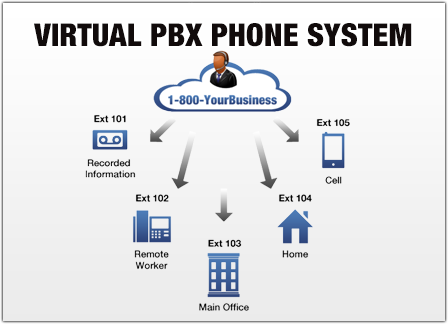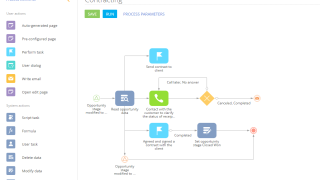Virtual PBX systems offer companies of all sizes strong financial, operational and business benefits. A virtual PBX (Private Branch Exchange) replaces the hardware on your site with hardware managed and maintained by a service provider in a secure data center. You access the service via an Internet connection, which gives you the chance to benefit from lower-cost calls and advanced phone services.
Just moving to a virtual PBX can give you immediate financial benefits. You can forget the upfront costs of replacing or upgrading your existing PBX and the ongoing costs of maintaining it. The cost is now a monthly fee that covers equipment, maintenance and upgrading.
You can also take advantage of such as features such as messaging, call-forwarding, and call-waiting, plus the ability to integrate with business applications like Microsoft Outlook or customer relationship management systems that can improve productivity and efficiency.
But, if you want to take full advantage of virtual PBX systems, there are a few issues to address.
A Router for the Job
Your router is the link between the service provider hosting your PBX and your office phones. Not all routers support VoIP, so check before you buy. An older router that you use for Internet access may not be sufficient. And, even if you have a suitable router, it has to be programmed correctly for VoIP. Check with your service provider that your router is VoIP ready.
The Right Connections
The same goes for your Internet connection. You must have a high-speed connection. If you have a broadband connection that is contended (the bandwidth is shared with other users), you may not have sufficient bandwidth at peak times and that will affect call quality. Ask your service provider to test your existing connection and give you a specification if you need to upgrade.
The alternative is to ask the service provider to deploy a SIP circuit. This is a digital circuit that is designed for Internet telephone services like virtual PBX, Voice over IP or Unified Communications. A SIP circuit will provide the connectivity and speed you need and will also give you access to multimedia services because it is capable of carrying voice, video, Internet and data traffic.
Quality of Service
Yo u have a choice of circuits to connect to your virtual PBX. To ensure call clarity and reliability, the circuit must incorporate Quality of Service (QoS). QoS prioritizes different types of traffic traveling on the same circuit. In this case, it must prioritize voice traffic so you get crystal-clear calls every time.
Phones Matter
The right phones are essential if you want to take full advantage of Virtual PBX systems. Although you can continue to use existing analog phones by fitting them with an adapter, the best results come when you have an IP-enabled phone.
This can either be a deskphone or a softphone that works with a computer or smartphone fitted with softphone software. With IP-enabled phones, you can use the services available from your service provider or migrate to a VoIP or Unified Communications service to access even more features.
Move Your Phone System Forward
If you would like to find out how to make the most of virtual PBX systems, BroadConnect Telecom can offer you advice and guidance on the most appropriate solution.


